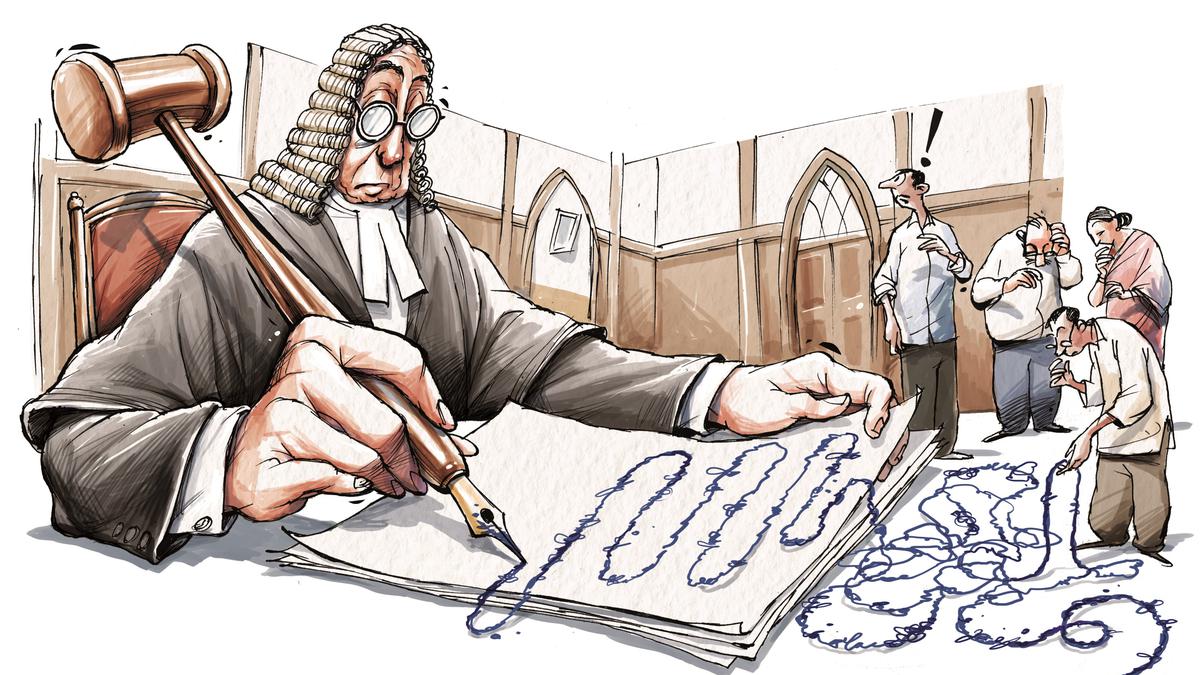
Limits of simplification Premium
The Hindu
The fundamental question is whether the complexity of laws can be addressed by solely prioritising the language and style of drafting
The language of law is self-contained and distinct from plain English. It has certain defining peculiarities such as domain-specific vocabulary, lengthy sentences, repetition of words within the same sentence, inclusion of foreign expressions, use of obsolete words, and so on. As a result of these distinctive characteristics, it is often referred to as legalese and is criticised for being incomprehensible to the layman.
The Union government, to make the statutory texts clear and comprehensible to common people, has initiated a mission to simplify the legal language in India by aligning it with the vision of the access to justice scheme titled DISHA.
Simplification of text of the statutes and plain language reforms are imperative for not only making the laws intelligible to all citizens but also to instil public confidence in the legal system of the country. However, the fundamental question that arises is whether the complexity of statutes and incomprehensibility can be addressed by solely prioritising language and style of drafting.
The plea for laws in plain English is a centuries-old matter across the globe. This concern led to a campaign in the West in the 1960s known as the Plain English Movement, which launched initiatives to draft various documents accessed by the public at large in the most lucid and understandable language possible.
A consumer movement was set in motion in 1975 when the Citibank of New York introduced a plain English consumer-friendly promissory note that attracted global attention. It was a step taken towards empowering common people, abolishing excessive bureaucracy and officialese, and making important consumer-related documents easy to understand. This gradually entered the legal realm with the introduction of plain English legislation in Canada, Australia, New Zealand, and South Africa.
Though this movement did not strongly impact the language of the statutes in the U.K. and the U.S. at that time, it did so systematically.
The general consensus in relation to legal language simplification reforms include suggestions such as replacing obsolete words and foreign expressions and reducing the length of sentences.





















 Run 3 Space | Play Space Running Game
Run 3 Space | Play Space Running Game Traffic Jam 3D | Online Racing Game
Traffic Jam 3D | Online Racing Game Duck Hunt | Play Old Classic Game
Duck Hunt | Play Old Classic Game











